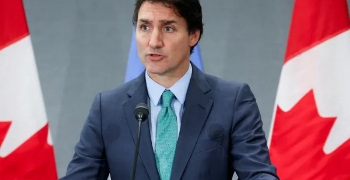New Delhi, Dec 10: The Indian government Wednesday said it has decided to decriminalise “attempt to suicide” by deleting the provision holding it an offence and providing for punishment from the statute book. The move won support from several parliamentarians and activists.
Minister of State for Home Haribhai Parathibhai Chaudhary told the Rajya Sabha in a written reply that the government had decided to drop section 309 from the Indian Penal Code following recommendations of the Law Commission and consultations with the states.
“Law Commission of India, in its 210th Report, had recommended that section 309 (attempt to commit suicide) of IPC needs to be effaced from the statute book,” he said.
Since law and order was a state subject, views of states and union territories were sought on the recommendations given by the Law Commission, he said.
“Eighteen states and four union territory administrations have supported that section 309 of the IPC may be deleted. Keeping in view the responses from the states/UTs, it has been decided to delete section 309 of IPC from the statute book,” the minister said.
He also said the government does not maintain data about attempt to suicide.
However, responding to a different question, the minister said that there were 134,799 suicides in India in 2013 – an average of 369 a day. Maharashtra, which has witnessed several farmer’s suicides, recorded the highest number of 16,622 suicides in 2013, followed by Tamil Nadu with 16,601 suicides, and Andhra Pradesh with 14,607, he said.
Congress’ M. Veerapa Moily, a former law minister, said the United Progressive Alliance government also wanted to decriminalise section 309, which says that whoever attempts to commit suicide and does any act towards the commission of such offence shall he punished with simple imprisonment for a term which may extend to one year or with fine or with both.
“It was our view (also),” Moily told IANS, adding the UPA government had moved the Law Commission on the issue.
Congress spokesperson Abishek Manu Singhvi said that the government’s decision was correct in his personal opinion.
Party MP V. Hanumantha Rao also noted that a person attempts to commit suicide only in extreme distress.
“Most of suicides are committed by farmers as they are burdened with loans. There is need to be lenient towards circumstances of such a person,” he said.
Former police officer Kiran Bedi supported the government’s decision.
“It is good that the government is removing the offence of attempt to commit suicide from the IPC. Such a person needs healing, not arrest or punishment,” Bedi told IANS.
Human rights activist Irom Sharmila, who has been on hunger strike for several years against Armed Forces Special Force Act, was also charged with attempt to suicide.
Activist and lawyer Vrinda Grover also welcomed the government decision.
“Somebody who is despairing so much, what is the point of making it criminal… This step should have been taken long ago,” she said.
Communist Party of India-Marxist MP Tapan Sen said life was dearest to all and persons attempting to commit suicide does so under some serious predicament or compulsion.
Janata Dal-United leader K. C. Tyagi, however, said the government had decided to remove section 309 “to hide its failures.
He said that there was official data on suicides and the next step of the government could be not to have such data.
“There should be a debate why people are forced to commit suicide,” he said.
Shiv Sena leader Sanjay Raut, saying he does not agree with the law panel’s recommendations, said that there were large number of suicides by farmers in Maharashtra.
“Why are people forced to take extreme step. The government is responsible,” he said. (IANS)






































